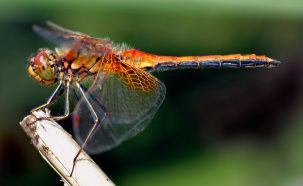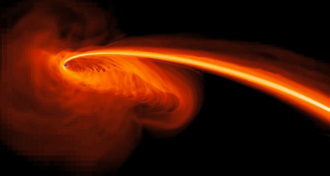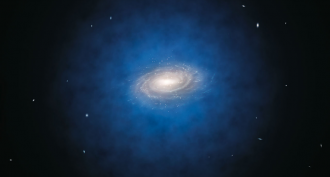
Stephen Ornes has been writing for Science News Explores since 2008, and his 2014 story "Where Will Lightning Strike?" won an AAAS/Kavli Gold Award. He lives in Nashville, Tenn., and he has three children, who are inventing their own language. His family has a cat, six chickens, and two rabbits, but he secretly thinks hagfish are the most fascinating animals. Stephen has written two books. One is a biography of mathematician Sophie Germain, who was born during the French Revolution. The other, which was published in 2019, features art inspired by math. Visit him online at stephenornes.com.

All Stories by Stephen Ornes
-
 Fossils
FossilsEnd of big bug era
Flying predators probably gobbled up the biggest of the large flying insects 150 million years ago
-
 Space
SpaceGalactic mashup
Save the date: The Milky Way will merge with its nearest large neighbor in about 4 billion years.
-

-
 Brain
BrainCandy on the brain
Imaging reveals brain regions that become active when you want someone else’s stuff.
-
 Animals
AnimalsMammals feel the heat
Scientists predict some animals won’t be able to keep up with Earth’s increasing temperatures.
-

-

-
 Space
SpaceBlack hole’s big gulp
Astronomers say a bright flare in space shows where a black hole tore apart a star.
-
 Brain
BrainSeeing swirling snakes
Brain scientists watch the eyes of people watching an optical illusion.
-

-
 Science & Society
Science & SocietyObesity linked to location
Kids living near parks or markets less likely to be extremely overweight.
-
 Physics
PhysicsDark matter search turns up empty
Star study suggests our cosmic neighborhood may be lacking invisible matter.